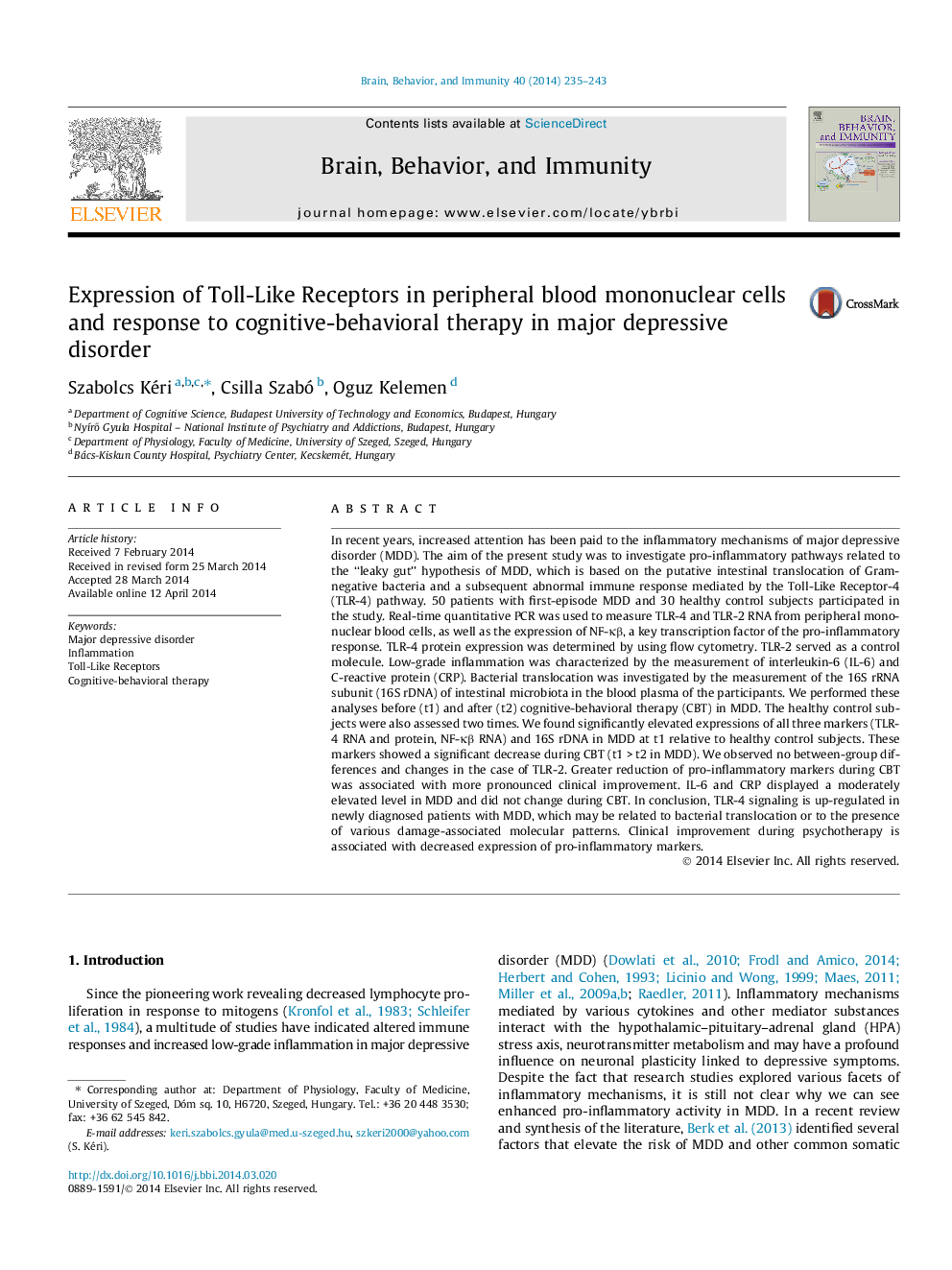| کد مقاله | کد نشریه | سال انتشار | مقاله انگلیسی | نسخه تمام متن |
|---|---|---|---|---|
| 921984 | 1473927 | 2014 | 9 صفحه PDF | دانلود رایگان |
In recent years, increased attention has been paid to the inflammatory mechanisms of major depressive disorder (MDD). The aim of the present study was to investigate pro-inflammatory pathways related to the “leaky gut” hypothesis of MDD, which is based on the putative intestinal translocation of Gram-negative bacteria and a subsequent abnormal immune response mediated by the Toll-Like Receptor-4 (TLR-4) pathway. 50 patients with first-episode MDD and 30 healthy control subjects participated in the study. Real-time quantitative PCR was used to measure TLR-4 and TLR-2 RNA from peripheral mononuclear blood cells, as well as the expression of NF-κβ, a key transcription factor of the pro-inflammatory response. TLR-4 protein expression was determined by using flow cytometry. TLR-2 served as a control molecule. Low-grade inflammation was characterized by the measurement of interleukin-6 (IL-6) and C-reactive protein (CRP). Bacterial translocation was investigated by the measurement of the 16S rRNA subunit (16S rDNA) of intestinal microbiota in the blood plasma of the participants. We performed these analyses before (t1) and after (t2) cognitive-behavioral therapy (CBT) in MDD. The healthy control subjects were also assessed two times. We found significantly elevated expressions of all three markers (TLR-4 RNA and protein, NF-κβ RNA) and 16S rDNA in MDD at t1 relative to healthy control subjects. These markers showed a significant decrease during CBT (t1 > t2 in MDD). We observed no between-group differences and changes in the case of TLR-2. Greater reduction of pro-inflammatory markers during CBT was associated with more pronounced clinical improvement. IL-6 and CRP displayed a moderately elevated level in MDD and did not change during CBT. In conclusion, TLR-4 signaling is up-regulated in newly diagnosed patients with MDD, which may be related to bacterial translocation or to the presence of various damage-associated molecular patterns. Clinical improvement during psychotherapy is associated with decreased expression of pro-inflammatory markers.
Journal: Brain, Behavior, and Immunity - Volume 40, August 2014, Pages 235–243
